


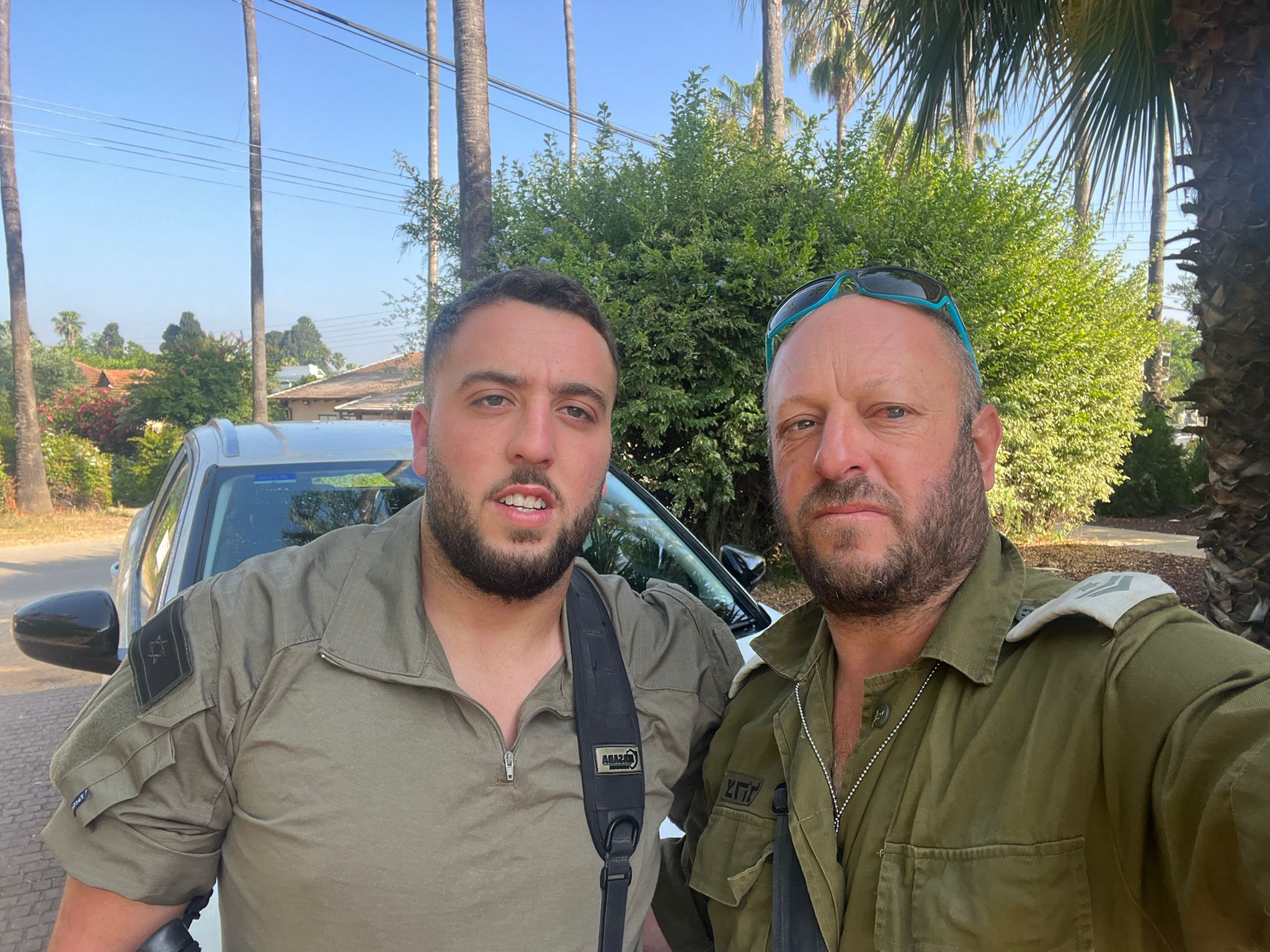
On October 7, 2023, 19-year-old Tamir Locker was home in the northern city of Pardes Hanna on weekend leave from the army, spending time with his father Eyal, mother Orit, and younger brother Elad.
His twin brother Ori was serving in the Golani Brigade, stationed near Zikim Beach along the northern Gaza border. At 4 a.m., hours before the devastating Hamas-led assault began, Ori made his last call to Tamir. Tamir, asleep, didn’t answer.
At 6:30 a.m., the family awoke to red alert sirens and news coverage of the attacks sweeping the country. Tamir’s commanding officer phoned, ordering him back to base. The moment the call ended, Tamir felt a sharp pain in his side.
“Dad, Ori died,” Tamir said, though his father refused to believe it.
Soon after, father Eyal was also called up for reserve duty on the northern front. Amid the chaos, Tamir and Eyal requested permission to stay home until they received clarity on Ori’s whereabouts.
As the day progressed without word from Ori, his father insisted on waiting outside for the casualty officers — those who notify families of fallen soldiers.
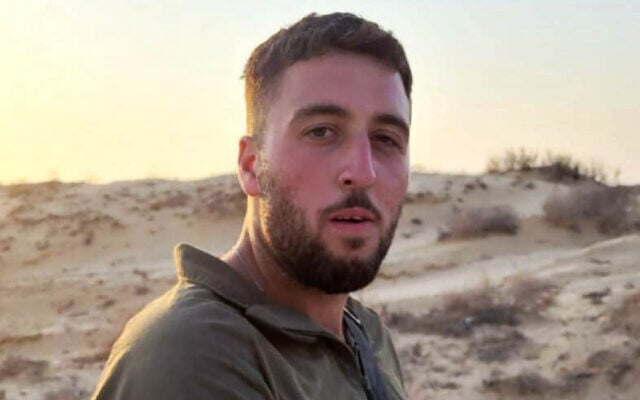
“He didn’t want them to knock on his door,” Tamir explained. “He wanted to receive them face-to-face.”
The father and son waited outside their home through the day and into the next morning. At 9 a.m. on Sunday, Eyal finally told Tamir to put on his combat gear — they would go search for Ori themselves.
As they were about to leave, a car pulled up in front of their house. Three officers stepped out. The news they brought confirmed what Tamir had felt in his bones the day before.
“It felt like the end of the world, like everything was crashing down around me,” Tamir recalled. “It felt like my soul was ripped in two, and Ori’s soul left my body and said goodbye.”
In the days following Hamas’s bloody October 7 massacre, which claimed some 1,200 lives and saw 251 abducted to the Gaza Strip, families across Israel were left reeling from sudden loss. Among them was the Locker family, mourning Ori’s death.
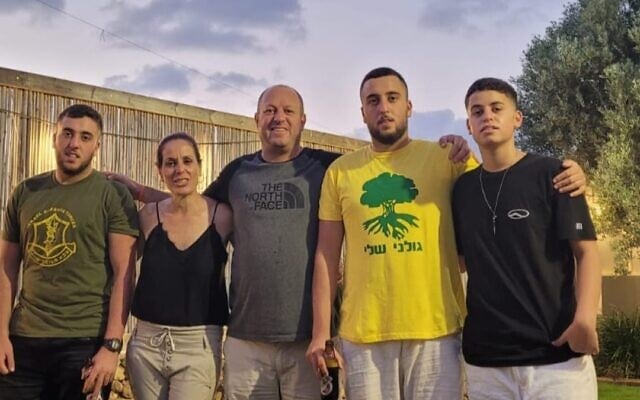
For Eyal and Tamir, coping meant turning grief into purpose — fulfilling a longtime dream to serve together in the Israel Defense Forces reserves, side by side.
“Even before Ori fell, we knew it was something we wanted to do,” said Tamir, now a 21-year-old paratrooper commander who completed his service in July and is set to join his father in the reserves. “There’s nothing more meaningful and moving than serving with your dad.”
Eyal, 53, first enlisted decades ago in the Paratroopers Brigade. Today, he volunteers in the reserves as a deputy company commander in the Armored Corps. When the chance came to serve alongside his son, he didn’t hesitate.
“It just seemed natural,” he said. “It’s a place where I can keep him safe — I hope.”
For Orit, watching her husband and son in uniform together brought a measure of comfort, though it didn’t erase her fears.
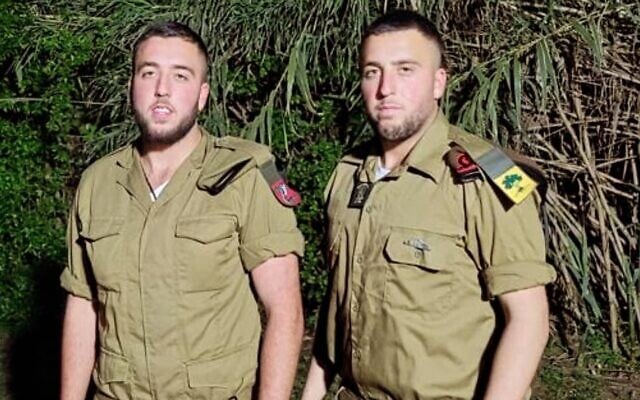
“I can’t say that I’m not scared,” she admitted. “Even when we thought everything would be fine in Gaza, suddenly the situation turned on its head,” a reference to Hamas’s shock October 7 attack on southern Israel.
Eyal’s unit, which he described as “very intimate and familial,” had already welcomed Tamir in the early days of the war: After the Paratroopers Brigade deemed bereaved soldiers unfit for combat, Tamir spent a short stint with his father’s reserve unit on the Lebanese border.
“The first time I put on my uniform [after October 7] was when my dad took me to reserves with him,” Tamir recalled. “That’s when I decided that, no matter what, I would be with him once I was discharged.”
For a month, the two served together, with Tamir becoming the youngest member of a unit of seasoned reservists.
“Everyone there was discharged before I was even born,” he said. “It’s like being everyone’s younger brother.”
The unit is made up of soldiers from different brigades, as well as from diverse socioeconomic and ethnic backgrounds.
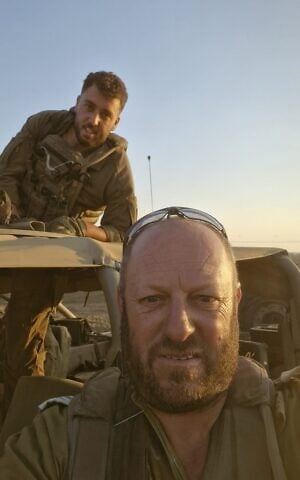
“In reserves, it doesn’t matter where you come from or what you do in your civilian life,” Tamir said. “It doesn’t matter who’s under the stretcher… We’re all there for the same reason — to give back to the country.”
That sense of unity and service, he explained, was something his parents had instilled in him and his brothers from a young age.
Orit said she and Eyal raised their three children in a deeply patriotic home, with an emphasis on giving without expecting anything in return.
“It’s no coincidence that they enlisted in combat roles,” she said. “As a mother, I wasn’t the happiest with their decisions, but I know my husband… and my sons would follow him — Eyal was so proud to see them and their journeys.”
During training exercises with his father’s unit, Tamir found himself moved by the dedication of older reservists — some fathers of large families, others running successful businesses — who carried their share without hesitation.
“If they can do it,” he said, “I, at the age of 21, obviously can do it too.”
While most IDF units enforce an age cap of 50, making reserve duty rare for older individuals, many — like Eyal — continue to volunteer. Today, soldiers over 50 account for five percent of the military’s reserve forces, marking a 50% increase since before the war began.
Eyal said that as long as he remains physically able, he will continue to volunteer for reserve duty.
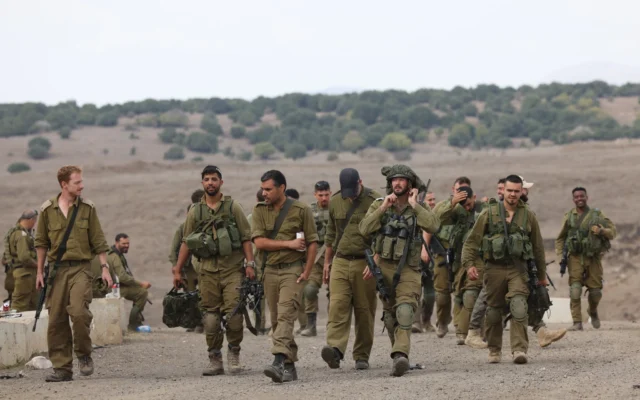
“At the end of the day, the feeling of actively contributing [to the war effort] is a feeling that no amount of money can compare to,” he said. “To give from yourself and not expect anything in return — it’s something that does me good.”
After the time spent with Eyal’s reserve unit, Tamir said he wants to follow in his father’s footsteps.
“Until the age of 50 or more, however much my body will allow me, I’ll be there in the reserves,” he said, citing his father as his inspiration. “I see my dad and his friends. I see the smile in their eyes.”
Eyal said the camaraderie of his fellow reservists has been a crucial source of support in the aftermath of Ori’s death — a bond that has helped him carry the weight of loss.
Orit saw it, too. “People come and ask me how I allow my husband to serve in the reserves and leave me alone,” she said. “It’s not easy for me, but that’s what helps Eyal — it’s his therapy.”
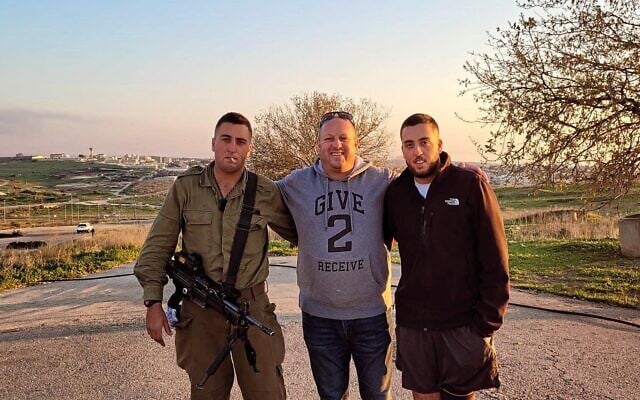
According to Tamir, the idea of a shared service took on even deeper meaning after the loss of his brother.
“It’s our way to honor Ori — the fact that we’re serving together and talking about him nonstop,” he explained.
For Eyal, keeping Ori’s memory alive has become woven into his daily life — both on and off the battlefield. He now carries his late son’s rifle sling. The strap bears the symbol of the Golani Brigade: a green olive tree.
It’s a striking contrast to Eyal’s own uniform — the red beret and red boots of a paratrooper. The combination often catches people’s attention and prompts them to ask questions.
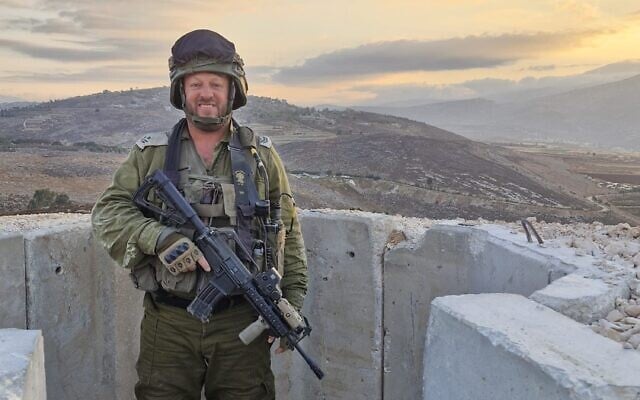
“Then I get to tell them Ori’s story,” he said. “That’s one more person who remembers Ori.”
The story behind that Golani strap and the legacy it carries began in the predawn darkness of October 7.
At first light, Ori was on patrol along the Gaza border fence with his platoon commander, Cpt. Itay Maor, 23, and his best friend, Sgt. Amit Tsur, 19, when they received reports of an attempted terrorist infiltration near the community of Netiv Ha’asara. The three raced to the scene and, together with other soldiers from a different battery and a tank, managed to thwart the attack.
Moments later, a message came through the walkie-talkie: more terrorists had been spotted near their outpost. As the three rushed back, they encountered a disabled Namer armored personnel carrier from their unit, under siege by terrorists attempting to break in. The trio leaped from their vehicle and engaged in a desperate firefight — outnumbered and ultimately overpowered. All three fell in battle.
Ori was found with empty magazines — a silent testament that he had fought until his very last bullet.
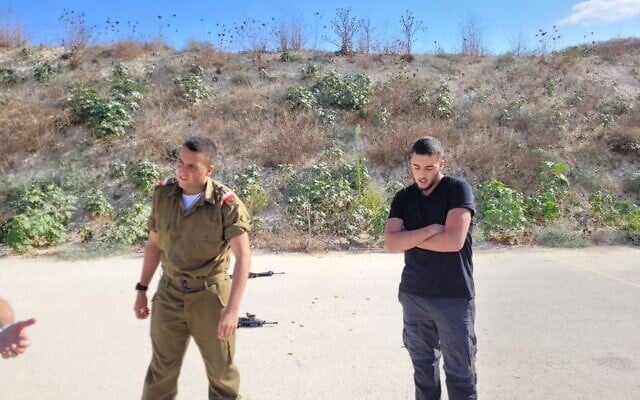
“In retrospect, we understood that Ori fell within the first hour and a half of the war,” Eyal said.
Since that day, Eyal described time as standing still. “Our life now is not the same as the life we had… our life has turned into a dish without seasoning.”
He wants people to remember Ori as he was: someone with a passion for life, who loved nature and laughing with friends — just like any other 19-year-old.
“He was a boy with so many dreams, and they were all cut short in a single day,” Orit said about her fallen son.
“I’m sure that if Ori were still alive, he would have joined us in the reserves,” Tamir said. “That would make a cooler headline: ‘Twins serve in reserves alongside their father.'”
